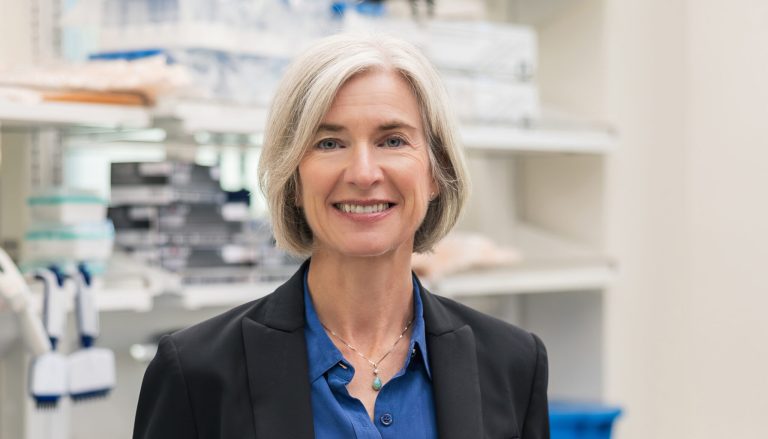Jennifer Doudna, a UC Berkeley biochemist who shared the 2020 Nobel Prize in Chemistry for inventing CRISPR-Cas9 genome editing, has been awarded the National Medal of Technology and Innovation, the highest honor national for a technological achievement.
President Joe Biden named Doudna and 10 other technology medalists during a White House announcement on Friday January 3.
Doudna is a professor of molecular and cellular biology and chemistry, an investigator at the Howard Hughes Medical Institute, a professor of science at Lawrence Berkeley National Laboratory (Berkeley Lab), and founder of the Innovative Genomics Institute. At Berkeley, she is the Li Ka Shing Chancellor’s Chair in Biomedical and Health Sciences and executive director of the Li Ka Shing Center for Genomic Engineering.
The medal was established by Congress in 1980 and first awarded in 1985. It is administered by the United States Patent and Trademark Office but is awarded annually by the President of the United States. In last Friday’s announcement, Biden also named 14 recipients of the National Medal of Science and two organizational recipients of the National Medal of Technology and Innovation.
“Those who win these awards embody the promise of America by pushing the boundaries of what is possible,” read a White House statement regarding this year’s medalists. “These pioneers harnessed the power of science and technology to solve complex problems and bring innovative solutions to Americans and communities around the world. »
Doudna is the fourth Berkeley faculty member to receive the National Medal of Technology and Innovation. At least 34 faculty members have received the National Medal of Science.
Doudna and her European colleague and co-Nobel laureate, Emmanuelle Charpentier, based their gene editing technology on CRISPR systems discovered in bacteria. The technology has been revolutionary, serving as the basis for many promising medical technologies, including tools for disease diagnosis and treatment, and has many applications for the development of improved crops, biofuels and bioproducts.
The Food and Drug Administration and regulators in the United Kingdom have already approved a gene therapy treatment using CRISPR-Cas9 to treat sickle cell disease. Doudna’s team, through the Innovative Genomics Institute, is collaborating with doctors at UCLA and UCSF Benioff Children’s Hospital in Oakland on research aimed at discovering CRISPR therapies even better for sickle cell disease.


